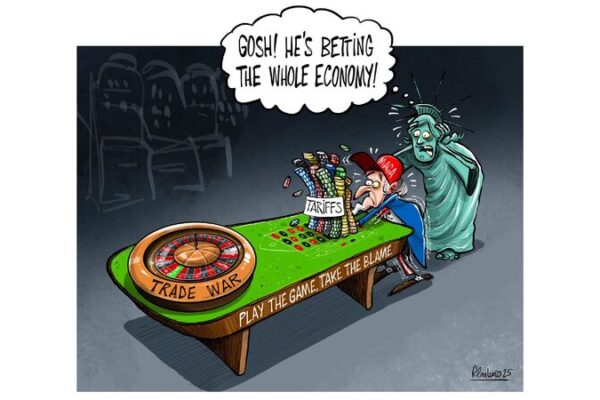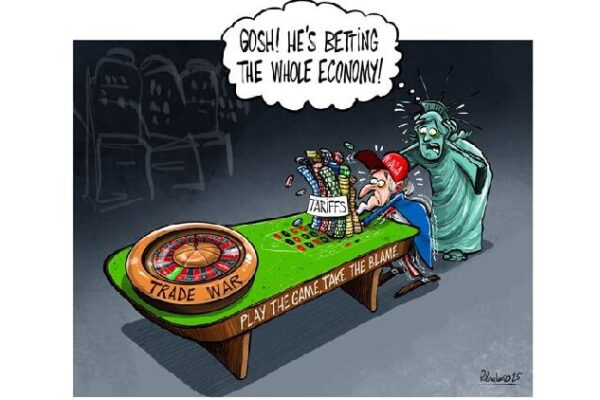
Trade Tensions Rise: Are We Facing a Tariff War of Attrition?
With new tariffs causing global concern, are we on the brink of a prolonged tariff war? Explore what this means for economies worldwide.
News for people and friends

With new tariffs causing global concern, are we on the brink of a prolonged tariff war? Explore what this means for economies worldwide.

Amazon has withdrawn its plan to display tariff-related import charges on product prices after facing criticism from the White House.

The US government’s recent tariff threats are backfiring, hurting its own economy and consumers, echoing past mistakes like the 1930 Smoot-Hawley Tariff Act.

American businessmen warn that US tariffs and the escalating trade war are increasing costs and causing market instability, affecting businesses and consumers alike.

Tariffs and trade tensions with the U.S. are influencing Canadian voters in the upcoming federal election.

Despite the US trade war, Hong Kong’s financial markets remain stable, with the HKD strengthening and the banking system operating smoothly, according to HKMA deputy chief Darryl Chan.

The US government’s recent tariff threats have disrupted global trade and violated international rules, sparking widespread criticism from around the world.

Despite tariff hikes aiming to revive U.S. manufacturing, factories aren’t returning as expected. We explore why these policies may not be enough to bring back jobs and production to the United States.

China emphasizes that trade wars have no winners, urging the U.S. to engage in mutual dialogue to resolve tariff issues.

Global trade is being strained by the ongoing trade war, with experts predicting significant losses in trade volume for the rest of the year.